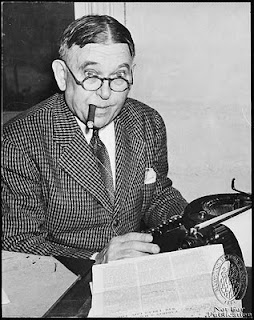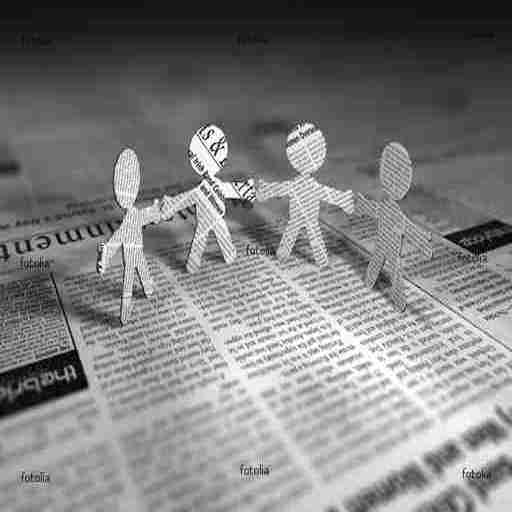The View from Afar
Writings by retired newspaper publisher Stephen Waters

The fabric of society: 11. Taking individual responsibility
fas11of14 Rome (NY) Sentinel 2015-10-13 October 13, 2015
[Article 11 of 14: The previous article examined the individual and governance.]
Humbling, isn’t it, to know your consciousness:
- • In size fits between the breadth of the universe at 156 billion light years and 10-16 meters at the level of quarks,
- • In time fits between 13.7 billion years of history and an infinite future, and
- • In a world is just one of 6,800,000,000 people, many of whom are in need of help.
That could make one feel small, but it puts each individual in charge of that single point in the universe that is the center of their unique consciousness at this one instant in time, gifted with the will to make decisions. Whatever its physics, the center of the universe is here, now, where each unique individual meets it.
Just as you are in charge of your point of consciousness, others are in charge of theirs. It is your responsibility to defend your point and path from others, and, reciprocally, resist the temptation to impose your trajectory on them. You can teach, but you cannot coerce except insofar as others violate the minimums of society. How does one decide what to do?
Socially imposed altruism uses others to pressure individuals into what to do for those in need. Charity is how one decides for oneself what to do. Altruism gives no practical way to answer the question, ‘Do you help one, two, ten, or ten thousand?’ But if altruism is unworkable, one needs to come to personal terms with generosity to create a reasonable, human alternative that puts one’s today, one’s life, and that of others in context.
Decide first whether to give up on altruism. Altruism is a premise whose time has never come and never will because others use it too easily as a club for their own interests. One has no obligation to help others — although those who would take advantage of an individual for their own reasons may try convincing them that they do. Instead, recall Charles Dickens’ Ebenezer Scrooge after his epiphany. Scrooge’s new perspective on his own existence led to reverence for the situation of others. More alert to one’s own journey, one is more sensitive to others, which presents opportunity and personal interest in charity. Few people read Adam Smith‘s first book, Theory on Moral Sentiments any more, but he recognized that altruism was not an effective virtue. Self-interest brings the truth of experience and, ironically, can be more effective at prompting people to help others. That may sound contrary to observation in today’s selfish world, but Smith described a principled position not to be confused with unthinking consumerism. Consider these good people:
- Dr. David Livingstone, the explorer, missionary, and physician of the “Dr. Livingstone, I presume” fame. He worked to abolish the slave trade, educate Africans, and improve their health care.
- Dr. Albert Schweitzer was a theologian, philosopher, musician, physician who organized clinics in west equatorial Africa, and who sought a universal ethical philosophy.
- Mother Theresa ministered to the poor, sick, and terminally ill in Calcutta for almost 50 years.
For whom did Livingstone, Schweitzer, and Mother Theresa do their work? Not the poor as conventional wisdom would have it, but for themselves. Joseph Campbell advised people to follow their bliss. That’s what Livingstone, Schweitzer, and Mother Theresa did. They put themselves where they felt they belonged. Central Africa, India, or our poorest neighborhood may not be where you belong. It is not a role a teacher, a parent, or someone else can press upon you. Not altruism, but your own inquiry into yourself will lead to your particular answer.
Approach the issue obliquely with these questions. Figure how far along a continuum you’d place yourself:
Are you most comfortable when you are busy or idle? Are you most comfortable with physical work or mental work? Are you most comfortable solitary or social?
Along the X, Y, and Z axes an individual can, respectively, place answers to those questions. There is only one location in the graph that describes one’s unique comfort zone for today. It will be different on other days and different for other people. Certainly, there are more questions and axes possible, and all of them challenge one to be responsible for setting the mean between the extremes. Aristotle called one’s balance point the virtue between the vices. The balance point for each question can change over time. The task is not to put oneself at the center of one continuum or another, but to understand where, along each continuum, is at the time the healthy, comfortable place for one to be.
And if, among the considerations, one finds bliss tending to a garden, tending to family, tending a neighbor, tending to community, or tending to the world, at that moment, that is where one belongs. If it is in the heart of Africa, at a soup kitchen at the Welcome Hall, teaching, writing, or coaching Little League, or simply loving family or friends, go for it! It is not the job of someone else to shame one into altruism. How dare they try!
When you are at peace with your place in the universe, when you are in balance, one will find that Kant’s concept of duty is not the powerful motivator. Reciprocity — the sense that others live their lives as acutely as you live yours — is a powerful motivator to help and share, and find great joy in it.
[The next article examines how individuals find meaning.]

Stephen B. Waters
In early 2021, with 46 years in the business, I retired as publisher of the Rome (NY) Daily Sentinel
After five generations of family ownership, despite an unsettled economy, we keep on. We understand that although we may own the newspaper, we hold it in stewardship for the community.
Across my career, so many other small newspapers were purchased by media chains, large newspapers sold their integrity, and broadcast news outfits fell back on superficial entertainment.
They put journalism in this country at risk. The best antidote is for individual readers to arm themselves to recognize the danger to their community, culture, and society itself.
Index
-
 sbwTweet
sbwTweet
Mostly Links and Retweets -
 Essays
Essays
Writings across time -
 Editorials and columns
Editorials and columns
For the newspaper -
 Presentations
Presentations
Community discourse -
 Books
Books
Published and available -
 Audiobooks
Audiobooks
Readings and more